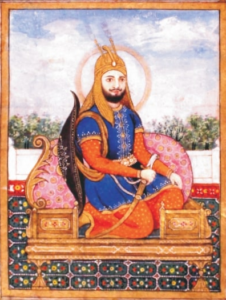Sher Shah Suri

Achievements:
- Foundation of the Suri Empire: Sher Shah Suri established the Suri Empire after defeating the Mughal Emperor Humayun at the Battle of Chausa in 1539 and the Battle of Kanauj in 1540, forcing Humayun into exile.
- Military Reforms and Conquests: Sher Shah’s military prowess was evident in his efficient army organization and the establishment of strong defensive structures. He expanded his empire to include regions such as Punjab, Rajasthan, Malwa, Sindh, and parts of Bengal.
- Architectural Contributions: Sher Shah is credited with several architectural achievements, including the construction of the Rohtas Fort and his mausoleum, the Sher Shah Suri Tomb in Sasaram, which is a fine example of Afghan architecture.
- Road and Infrastructure Development: He built the Grand Trunk Road (GT Road), which stretched from Chittagong in Bengal to Kabul in Afghanistan, improving trade and communication across the empire.
Reforms:
- Administrative Reforms: Sher Shah introduced a centralized administration and divided his empire into provinces called Sarkars, which were further divided into Parganas. Each Pargana had its own administrative officials, including a Shiqdar (military officer) and an Amin (revenue officer).
- Revenue Reforms: He implemented a standardized and efficient revenue collection system, introducing the Patta (title deed) and Qabuliyat (deed of agreement) system. Land revenue was assessed and collected based on the measurement of land.
- Coinage Reforms: Sher Shah introduced a new silver coin, the Rupiya, which weighed 178 grains (11.53 grams). This currency system laid the foundation for the modern Indian rupee.
- Judicial Reforms: He ensured a fair and efficient judicial system by establishing a network of courts throughout his empire, making justice accessible to the common people. He also appointed Qazis (judges) to oversee legal matters.
Trivia and Lesser-Known Facts:
- Sher Shah Suri’s original name was Farid Khan, and he earned the title “Sher Khan” after killing a tiger.
- His administrative efficiency and reforms were later adopted by the Mughals, especially Akbar, who refined and expanded upon them.
- Sher Shah was known for his policy of religious tolerance and ensured that his subjects, irrespective of religion, were treated fairly.
- He implemented a system of postal relays (Dak Chowkis) along the Grand Trunk Road, which facilitated communication and administration across the vast empire.